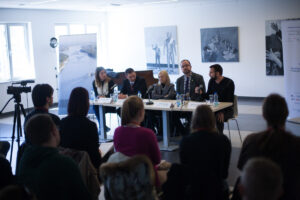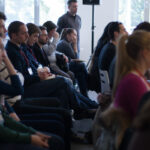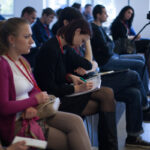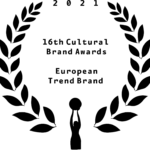Within the ‘Danube International Seminar’, which took place between 1 and 4 April in Novi Sad in Cultural Centre of Novi Sad, there was a panel discussion ‘Culture, Education and Science in the Danube Region’. The speakers were Dragica Koldžin from the Provincial Secretariat for Science and Technological Development, Petar Đurđev, Director of the Historical Archives of Novi Sad, Nikola Božić, Director of the ‘Petnica’ Research Centre for the development of scientific education, and Dr Andrej Fajgelj, Director of the Cultural Centre of Novi Sad. Participants of the four-day seminar were graduate students from Austria, Germany, Croatia, Bosnia and Herzegovina, Hungary and Serbia, who were having ongoing discussions where they learned more about culture, education and science in our country.
 Dragica Koldžin said that the University of Novi Sad consists of 14 faculties some of which are in Subotica, Zrenjanin and Sombor. As she pointed out, Novi Sad has a very nice student campus which includes almost all faculties, where nearly four thousand professors work, some of whom are foreigners.
Dragica Koldžin said that the University of Novi Sad consists of 14 faculties some of which are in Subotica, Zrenjanin and Sombor. As she pointed out, Novi Sad has a very nice student campus which includes almost all faculties, where nearly four thousand professors work, some of whom are foreigners.
She said that she is aware of the ‘brain drain’ problem and that they are trying to prevent it by motivating individuals and providing scholarships like the ‘First Chance’ program which allows young people to be involved in various projects. Furthermore, there is a project of co-financing our researchers who wish to return to Serbia from abroad so that they could be able to learn and work here.
Petar Đurđev mentioned one of the sentences from the ‘1984’, famous novel by George Orwell, which says: ‘He who controls the past, controls the future’ explaining that this is true because our knowledge of the past helps us in creating a better future. If we make an effort to learn from the past, he said, and if we can implement the archival materials in various spheres, we would find a lot of interesting facts that would help us improve our education.
Nikola Božić said that the ‘Petnica’ Research Centre was established 33 years ago, and that it is oriented towards young people who are interested in science. The Centre welcomes young people from all over Serbia, as well as from countries of the former Yugoslavia, who wish to learn.
– In the last three decades, 50 thousand students passed through our program and we are very proud of this. Our programs are implemented in cooperation with various universities and institutes and this is how we have gathered nearly two thousand junior and senior scientists from Serbia, Croatia, Bosnia and Herzegovina, FYR Macedonia and Montenegro. After all these years, our ‘network’ spreads around the world, so some of our ‘students’ are now working at prestigious international universities. As far as the presence of science in the media and generally among citizens is concerned, I think people are very interested to read scientific publications, but the problem is that we do not have enough journalists who are specialised in this area. Another big problem is that our educational system is not ready for the 21st century, the century of knowledge and information and these are the main things we need to focus on. The potential of young people for science in this area is great and it is very important to enable these people to be ‘mobile’ because through this kind of regional projects we can bring them together so they can work with each other – added Božić.
Andrej Fajgelj stressed that he is very pleased that the Organisation Board for the European Capital of Culture is one of the partners who has supported this seminar, because such events are key to keeping young people in the region. These seminars, he added, motivate people to change something and this is characteristic for young people.
– That’s why it is called ‘brain drain’, because we wouldn’t feel sorry if the worst were leaving the country, as much as we would feel sorry if the best and the brightest did that first. To prevent this, people should be given a chance to do something. If there were more events like this, I think that more people would remain here or consider to return – said Fajgelj.
While speaking of Novi Sad and its candidacy for the European Capital of Culture in 2021, he said that Novi Sad was, and still is, a multicultural city which is now a very rare case in Europe. Having indigenous and sustainable multicultural city for almost three centuries is a rare thing and it is something that Novi Sad can offer to the European Union. Of course, he said, we still have a lot of important and beautiful things which make us very proud of our cultural tradition. The potential that we have, he added, we must use in the right way, strengthen it and find new solutions to certain problems.
During four days, the Danube International Seminar had a goal to connect 25 young researches, master and PhD studies as well as graduate students from different countries of the Danube Region and, with a variety of workshops and lectures, to highlight many opportunities and options in the Danube Region.
On the third day of the ‘Danube International Seminar’, there was a lecture ‘The Floods in Serbia’. Assistant to the Mayor of Obrenovanc and Commander of the Staff against Floods, Ivan Jegorović spoke about this tragic event. The speech was followed by a discussion and guests had questions for the representative of Obrenovac, the city that suffered the most in last year’s floods. The lecture was also attended by Dalibor Lazić, who on that occasion saved 120 children.
On the last day of the ‘Danube International Seminar’, the participants had a chance to hear, among other things, more about the possibilities of studying in Novi Sad, more precisely about the Danube Masters study program, which was announced as a new project. Master of Tourism Slađana Stojanović said that the program is planned to initiate this year or the year after.
– The program will include four semesters at different locations: Ruse, Novi Sad, Ulm, Krems and Vienna. This is a preliminary master study program which is likely to be slightly changed, but the basic plan is to complete two semesters in Bulgaria, for the third semester to select one of the other cities, while the fourth semester would be the training that involves travel and work in companies in offered countries. In Novi Sad, the semester would include courses of politics, management and ‘soft skills’. All professors are experts in their fields. You will have the option of choosing subjects and you will have constant help from university for everything you need while studying – said Stanojević.
After a short presentation, seminar participants were asking questions regarding this program, and judging by their interest, we can expect a large number of participants.





